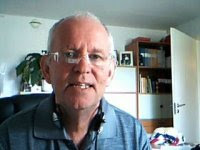Iceland walks out on EU membership talks
The foreign ministry said it had received an opinion from its
constitutional advisors that the government was not bound by
a 2009 parliamentary vote to launch the membership talks.
constitutional advisors that the government was not bound by
a 2009 parliamentary vote to launch the membership talks.
Iceland said yesterday (22 August) that a recent election which brought
eurosceptic parties to power had been interpreted by constitutional
advisors as a signal to stop EU accession talks.
eurosceptic parties to power had been interpreted by constitutional
advisors as a signal to stop EU accession talks.
"After receiving this opinion the foreign minister has decided to
consider dissolving the negotiation committee," the ministry said in a
statement, quoted by the AFP news agency.
consider dissolving the negotiation committee," the ministry said in a
statement, quoted by the AFP news agency.
On a recent visit to Brussels, the new Prime Minister of Iceland
Sigmundur Gunnlaugsson was told by European Commission President
José Manuel Barroso to decide “without further delay” whether it
wanted to continue accession negotiations or abandon plans to join the
EU.
Sigmundur Gunnlaugsson was told by European Commission President
José Manuel Barroso to decide “without further delay” whether it
wanted to continue accession negotiations or abandon plans to join the
EU.
The committee's dissolution effectively signals the abandonment of
these negotiations. On 27 April, Iceland held elections, inflicting to the
ruling pro-European Social Democrats the the biggest defeat any ruling
national party has suffered since independence from Denmark in 1944.
these negotiations. On 27 April, Iceland held elections, inflicting to the
ruling pro-European Social Democrats the the biggest defeat any ruling
national party has suffered since independence from Denmark in 1944.
Gunnlaugsson, 38, is Europe's youngest democratically elected head of
government. Since 2009, he has led the Progressives, a centre-right and
liberal party affiliated with Liberal International.
government. Since 2009, he has led the Progressives, a centre-right and
liberal party affiliated with Liberal International.
The Progressive Party draws most of its support from farmers and
fishermen. In coalition with the Independence Party (see background),
the Progressives oppose EU membership.
fishermen. In coalition with the Independence Party (see background),
the Progressives oppose EU membership.
In May, the new government announced a halt to the country’s EU
accession talks until Icelanders vote in a referendum within the next four
years on whether they want membership negotiations to continue.
accession talks until Icelanders vote in a referendum within the next four
years on whether they want membership negotiations to continue.
The decision of Iceland to stop the accession talks can be seen as bad
news in Brussels. Croatia's recent accession gave EU leaders the
opportunity to boast about the attractiveness of EU membership, despite
the economic and sovereign debt crises.
news in Brussels. Croatia's recent accession gave EU leaders the
opportunity to boast about the attractiveness of EU membership, despite
the economic and sovereign debt crises.
Iceland was put on a fast track to EU accession, as it had already taken
on board much of the EU legislation as member of the European Economic
Area (EEA). It formally applied for EU membership on 16 July 2009 and
started accession talks only one year later. The process has taken much
longer for any other applicant country.
on board much of the EU legislation as member of the European Economic
Area (EEA). It formally applied for EU membership on 16 July 2009 and
started accession talks only one year later. The process has taken much
longer for any other applicant country.
But Iceland is a special case, as the country’s powerful fishing industry
is in deep conflict with the EU over fishing quotas. The Commission says
it can accommodate Iceland’s “specificities”, but in fact the differences
between Reykjavik and Brussels are not only of technical but of political
nature. The EU considers that Iceland is overfishing and that the island
nation should accept strict quotas. Iceland says it has more experience
in fishing that the Union itself and that it could teach Brussels best
practices.
is in deep conflict with the EU over fishing quotas. The Commission says
it can accommodate Iceland’s “specificities”, but in fact the differences
between Reykjavik and Brussels are not only of technical but of political
nature. The EU considers that Iceland is overfishing and that the island
nation should accept strict quotas. Iceland says it has more experience
in fishing that the Union itself and that it could teach Brussels best
practices.
Recently, Iceland backed the Faroe Islands in a fishing quotas conflict
with the EU and objected to the EU position in the strongest terms.
with the EU and objected to the EU position in the strongest terms.
EurActiv.com





Inga kommentarer:
Skicka en kommentar